UBC Applied Science Co-op Student of the Year 2022 Award Recipient
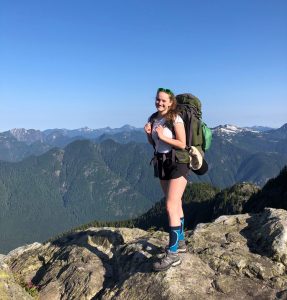 |
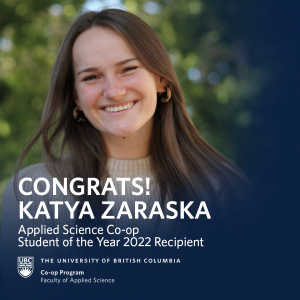 |
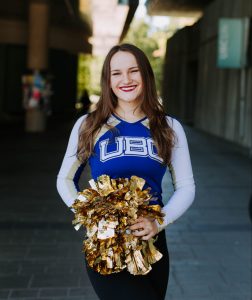 |
Katya Zaraska
Biomedical Engineering ’24
With positive experiences throughout her co-op career thus far, her dedication to progressing the engineering profession, and her contributions to the biomedical industry, we are excited to announce that Katya (Kat) Zaraska is our UBC Applied Science Co-op Student of the Year 2022 Award Recipient.
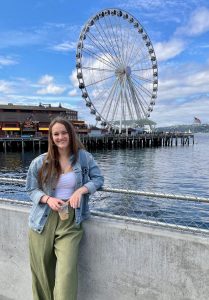 Kat is an undergraduate student in the Biomedical Engineering program in her fifth-year at UBC, specializing in Biomechanics and Biomaterials. Kat has completed 20 consecutive months of co-op work experience, working in biomedical device development and clinical engineering. Most recently, Kat finished a co-op work term with Vancouver General Hospital/UBC Department of Surgery in the Prisman Lab where she was working on a surgical tool design/development for use in head and neck surgeries. She is currently working on publishing research studies related to patient-specific surgical planning and biomechanics related to mandibular reconstructions. Kat is passionate about applications of engineering in medicine and her career goals revolve around improving patient care and surgical outcomes. Kat is also entering her 4th season as an athlete on the UBC competitive cheerleading team. When she isn’t at the lab or at cheer practice, Kat is probably skiing or coaching gymnastics.
Kat is an undergraduate student in the Biomedical Engineering program in her fifth-year at UBC, specializing in Biomechanics and Biomaterials. Kat has completed 20 consecutive months of co-op work experience, working in biomedical device development and clinical engineering. Most recently, Kat finished a co-op work term with Vancouver General Hospital/UBC Department of Surgery in the Prisman Lab where she was working on a surgical tool design/development for use in head and neck surgeries. She is currently working on publishing research studies related to patient-specific surgical planning and biomechanics related to mandibular reconstructions. Kat is passionate about applications of engineering in medicine and her career goals revolve around improving patient care and surgical outcomes. Kat is also entering her 4th season as an athlete on the UBC competitive cheerleading team. When she isn’t at the lab or at cheer practice, Kat is probably skiing or coaching gymnastics.
Read about how Kat has engaged positively with Co-operative Education and how her experiences have enhanced her professional, educational, and personal areas of life!
“In my second year of engineering, I realized how vast and daunting the biomedical industry can seem as a new graduate with minimal to no work experience. Having only been exposed to some introductory concepts, I felt I couldn’t possibly learn enough to make an informed career decision by the time I graduated. On top of this, when Covid swept across Canada and virtual learning shut down labs and hands-on learning, I knew I would be missing out on many of the practical skills I’d need as an engineer. For these reasons, I was drawn to the idea of the co-op program, knowing that I would gain valuable industry knowledge, learn how to physically design/build things and engage with practicing engineers with huge amounts of experience to share. Additionally, knowing my naturally indecisive nature and anxiety surrounding my future, I knew I had to take control and learn more about my career options.
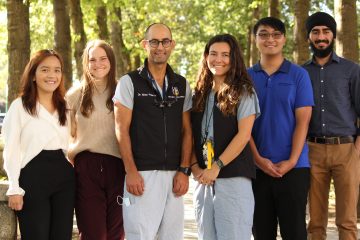 During my co-op education thus far, I have had the opportunity to work in two very different sectors of the biomedical engineering industry. Having the opportunity to explore various avenues and apply different technical skills has yielded positive impacts on clarifying my career directions for post-graduation.
During my co-op education thus far, I have had the opportunity to work in two very different sectors of the biomedical engineering industry. Having the opportunity to explore various avenues and apply different technical skills has yielded positive impacts on clarifying my career directions for post-graduation.
The diversity of skills that I acquired range from foundations in engineering physics, biomedical imaging, mechanics, machining and CAD. My first placement gave me a new depth of knowledge in mechanical design and hand-on testing, however it also taught me that medical device development is a lengthy and rigorous process. In contrast, my second placement was clinical and I was given more freedom to explore areas I was interested in. Coordinating research studies interfaced engineering and medicine in ways I didn’t think possible before. My biggest takeaway from this role was the realization that working alongside doctors to help with patient care is what I want to continue doing throughout my career.
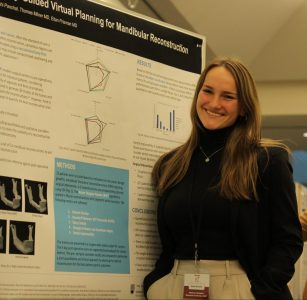 On 2022, I had the opportunity to present a co-op related research project at an undergraduate student conference. Students of varying experiences approached me to learn more about my work. I was able to demonstrate to my peers that research engineering is a diverse and rewarding field where amazing innovation in medicine can occur. I emphasized that I wouldn’t have been involved in my research placement if it weren’t for the co-op job board. I had never realized that research and clinical engineering was where I felt most empowered until I took on a co-op research role, and this conference gave me the perfect platform to share this tip with younger undergraduate students. Following the conference, I even had a first-year student reach out, saying they were so inspired by my work that they decided to transfer from science into biomedical engineering and were hoping to also pursue co-op research.
On 2022, I had the opportunity to present a co-op related research project at an undergraduate student conference. Students of varying experiences approached me to learn more about my work. I was able to demonstrate to my peers that research engineering is a diverse and rewarding field where amazing innovation in medicine can occur. I emphasized that I wouldn’t have been involved in my research placement if it weren’t for the co-op job board. I had never realized that research and clinical engineering was where I felt most empowered until I took on a co-op research role, and this conference gave me the perfect platform to share this tip with younger undergraduate students. Following the conference, I even had a first-year student reach out, saying they were so inspired by my work that they decided to transfer from science into biomedical engineering and were hoping to also pursue co-op research.
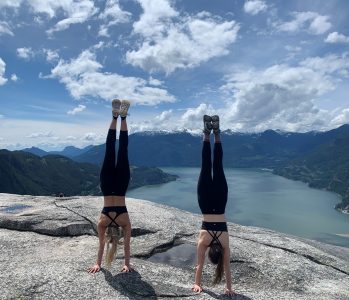 In summary, I am extremely grateful to the co-op program for providing me with an outlet for my creativity, allowing me to foster my interests in hands-on work and helping me realize that I hope to use my engineering knowledge for improving patient care in a clinical setting.”
In summary, I am extremely grateful to the co-op program for providing me with an outlet for my creativity, allowing me to foster my interests in hands-on work and helping me realize that I hope to use my engineering knowledge for improving patient care in a clinical setting.”
Katya Zaraska
UBC Undergraduate Biomedical Engineering Student
Applied Science Co-op Student of the Year Award Info
Award Information for January to December 2022 Learn More